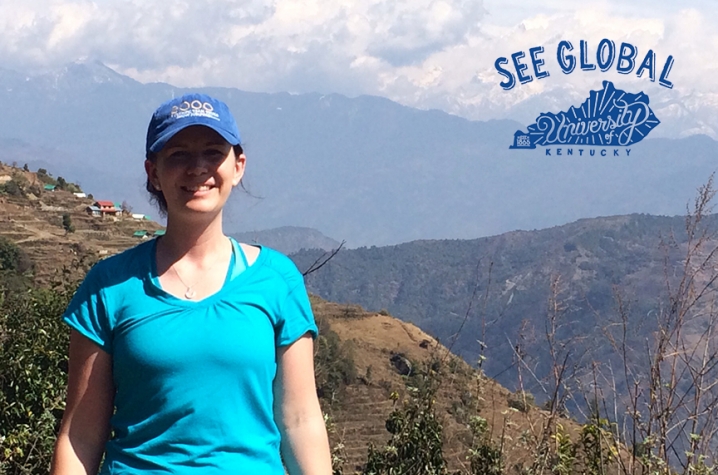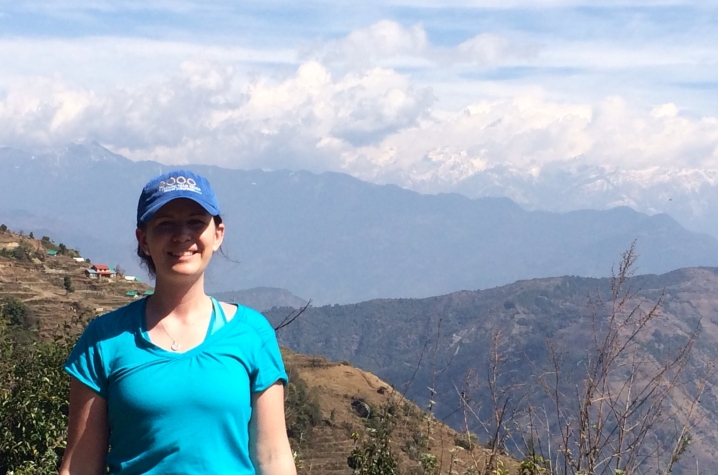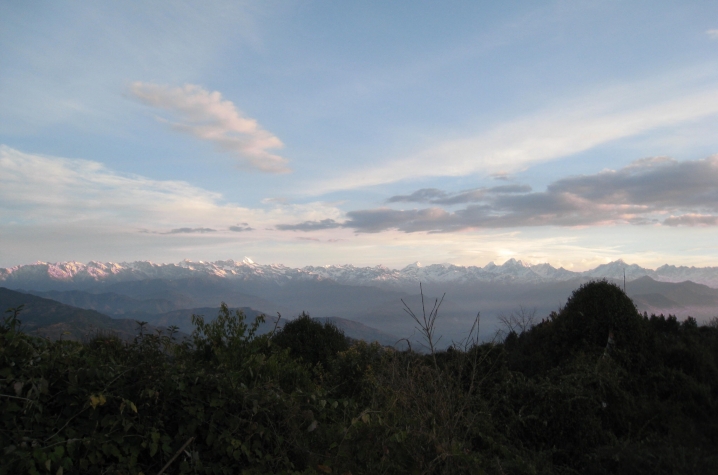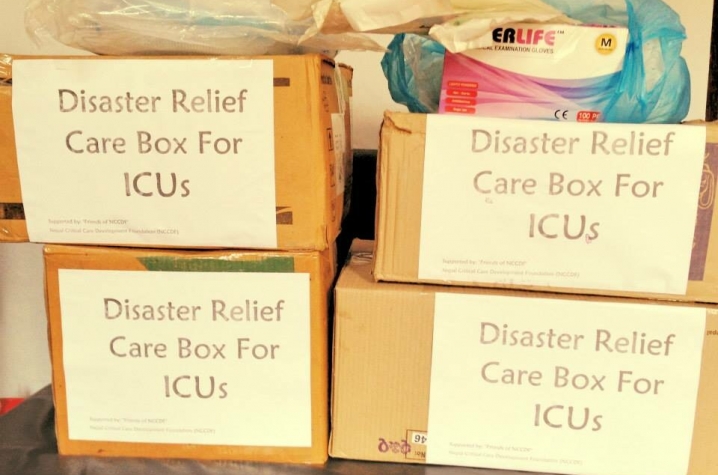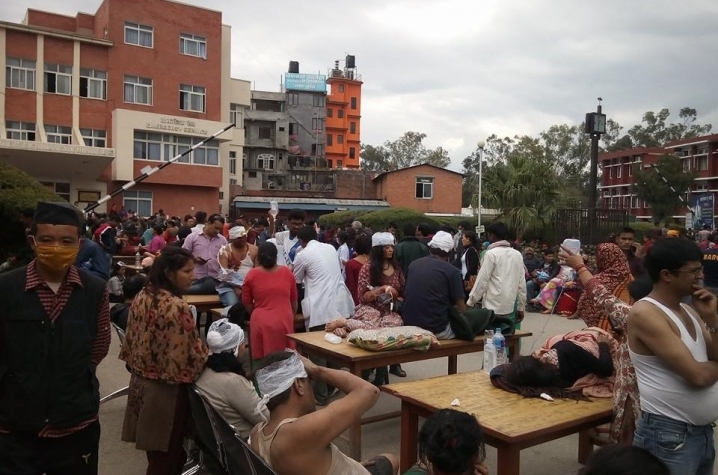Medical Student Gives Ultrasound Workshops in Nepal Before Earthquake Emergencies
LEXINGTON, KY. (May 15, 2015) — Not even sopping wet hiking gear could blemish Jennifer Cotton's memory of a pink- and orange-hued morning sun surfacing over the Himalayan mountain line.
In between medical training sessions at Tribhuvan University in Nepal, the fourth-year University of Kentucky medical student trekked across the Kathmandu Valley, stopping at small villages along the way, with a group of colleagues from around the world. On the first day of their adventure, a constant pouring of rain drenched their clothes, which they dried over a campfire that night. But Cotton dismissed the wet, rugged outdoor conditions when she woke at 4 a.m. to a magnificent illumination across the sky.
"It's something you just can't quite put into words," Cotton said.
Feeling a close connection to the culture, land and people of Nepal since her trip in February, Cotton was troubled to learn of the devastation caused by two recent earthquakes in the region. A magnitude 7.8 earthquake on April 25 caused the deaths of more than 8,000 people, and a magnitude 7.3 earthquake rattled the eastern part of Nepal near Mount Everest on May 12. Cotton, who graduates from the UK College of Medicine on May 16, is raising funds to help Nepali doctors replenish intensive care unit supply boxes, which cost as much as $4,000 and have been depleted since the first emergency response.
"It's horrible, and it's hard to watch from here," Cotton said of the situation in Nepal. "We're trying to do the best we can from here. They don't need medical volunteers — they need supplies."
After traveling to Montreal to provide ultrasound training at a conference in 2014, Cotton was invited by the Nepal Critical Care Development Foundation to serve as a trainer during an ultrasound workshop held in the capital city of Kathmandu. During her two-week trip, Cotton and medical colleagues from around the world taught Nepali doctors the latest techniques in critical care ultrasound. The only American to participate as a trainer in the conference’s workshop, Cotton said she was humbled to have the opportunity to pass her skill set on to Nepali doctors.
Although she was younger and less experienced than the Nepali doctors, she had mastered critical care ultrasound skills through her involvement in the UK College of Medicine Ultrasound Interest Group and the mentorship of Dr. Matt Dawson, UK HealthCare director of point of care ultrasound.
The Nepal Critical Care Development Foundation has contributed to building a strong critical care training program in Nepal. The group is providing intensive care unit (ICU) medical supply boxes for doctors in the region in the wake of the earthquake emergencies. Until recently, the area provided few opportunities for advanced critical care training.
Cotton instructed many local doctors on how to hold an ultrasound probe for the first time. Because of Cotton's training, doctors from across the region were equipped with new skills in trauma and critical care ultrasound only months before two major disasters. Cotton said she will continue to participate in the annual ultrasound training in Nepal.
Cotton was a member of the team of University of Kentucky student sonographers who won the first World Cup of Ultrasound contest during the World Congress of Ultrasound in Medical Education last fall. She will complete her emergency medicine residency training at The Ohio State University. Ultrasound is listed by Stanford University as one of the most valuable skills for medical students entering the field.
Cotton is in the process of establishing a nonprofit foundation to support the Nepali doctors long-term. To support disaster relief kits for Nepal now, visit https://www.indiegogo.com/projects/nepal-icu-care-box.
MEDIA CONTACT: Elizabeth Adams, elizabethadams@uky.edu





